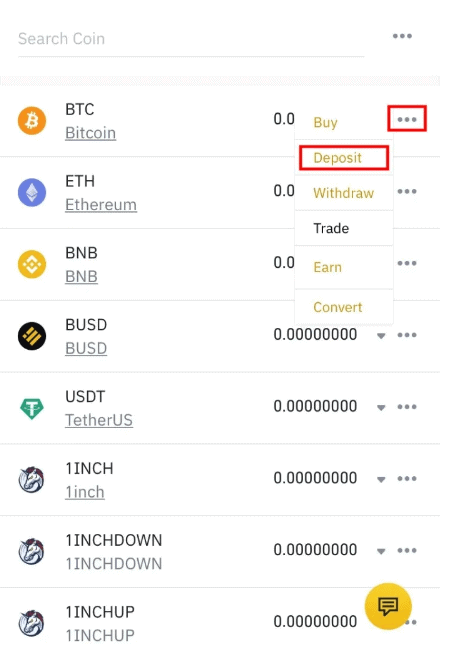Binance profit tracker
BscScan was developed by the well-experienced team behind the popular Ethereum block explorer Etherscan, headed by its founder and CEO, Matthew Tan. Both these blockchain explorers have simple layouts aimed at providing the crypto community with a user-friendly experience https://megahexandword.com/top-best-stremio-addons/.
Step 4: You can also use this Gas Tracker to get the list of top Gas Guzzlers (contracts or accounts that cost high gas fees) and Gas Spenders (contracts or accounts that pay high gas fees) on the BNB Smart Chain.
This BNB Smart Chain block explorer’s website has a search bar that allows fast results for user queries like token details. The homepage also lists all major options on the top navigation bar for faster access, especially for new BSC ecosystem users.
The gas tracker also provides separate data on the fee charged for ‘Standard’, ‘Fast’, and ‘Rapid’ transaction speed on BSC. Along with the charge, the expected time range for each transaction is also mentioned to guide users in selecting an ideal speed for their transactional activities.
Our BSC gas fee calculator simplifies the process of estimating transaction costs. By inputting details such as transaction type, complexity, and current network conditions, users can get an accurate estimate of the gas fees required. This tool is especially useful for developers and businesses planning large-scale operations on the Binance Smart Chain.
Binance wallet address tracker
Disclaimer: This tool will try to validate the syntax of your address and is unable to actually confirm if specific address exists or belongs to someone. Regardless of the results of this tool, always double check that you are sending/receiving funds to an existing address.
Binance Coin (BNB) was introduced in 2017 as the native cryptocurrency of the Binance exchange, one of the world’s largest cryptocurrency exchanges founded by Changpeng Zhao (CZ). Initially launched as an ERC-20 token on the Ethereum blockchain, BNB later migrated to Binance’s own blockchain, Binance Smart Chain (BSC), as a BEP-2 token. Transactions involving Binance Coin include trading pairs on the Binance exchange, paying for trading fees, participating in token sales on the Binance Launchpad platform, and accessing various decentralized finance (DeFi) applications built on Binance Smart Chain. Binance Coin wallets can be hosted on various platforms, including the Binance exchange, third-party wallets that support BEP-2 or BEP-20 tokens, and hardware wallets compatible with Binance Coin. Users can validate Binance Coin addresses by verifying that they adhere to the BEP-2 or BEP-20 token standards and have not been tampered with. Binance Coin’s transaction history reflects its evolution from a utility token within the Binance ecosystem to a multi-purpose digital asset with applications ranging from trading and payments to decentralized finance (DeFi) and non-fungible tokens (NFTs). As Binance Coin continues to expand its utility and adoption, it plays a crucial role in facilitating transactions and powering various services within the broader cryptocurrency ecosystem, contributing to Binance’s mission of making cryptocurrencies more accessible and usable worldwide.

Disclaimer: This tool will try to validate the syntax of your address and is unable to actually confirm if specific address exists or belongs to someone. Regardless of the results of this tool, always double check that you are sending/receiving funds to an existing address.
Binance Coin (BNB) was introduced in 2017 as the native cryptocurrency of the Binance exchange, one of the world’s largest cryptocurrency exchanges founded by Changpeng Zhao (CZ). Initially launched as an ERC-20 token on the Ethereum blockchain, BNB later migrated to Binance’s own blockchain, Binance Smart Chain (BSC), as a BEP-2 token. Transactions involving Binance Coin include trading pairs on the Binance exchange, paying for trading fees, participating in token sales on the Binance Launchpad platform, and accessing various decentralized finance (DeFi) applications built on Binance Smart Chain. Binance Coin wallets can be hosted on various platforms, including the Binance exchange, third-party wallets that support BEP-2 or BEP-20 tokens, and hardware wallets compatible with Binance Coin. Users can validate Binance Coin addresses by verifying that they adhere to the BEP-2 or BEP-20 token standards and have not been tampered with. Binance Coin’s transaction history reflects its evolution from a utility token within the Binance ecosystem to a multi-purpose digital asset with applications ranging from trading and payments to decentralized finance (DeFi) and non-fungible tokens (NFTs). As Binance Coin continues to expand its utility and adoption, it plays a crucial role in facilitating transactions and powering various services within the broader cryptocurrency ecosystem, contributing to Binance’s mission of making cryptocurrencies more accessible and usable worldwide.
As one of the world‘s largest and most popular cryptocurrency exchanges, Binance provides a user-friendly platform for buying, selling, and storing digital assets. Whether you‘re a seasoned trader or just getting started with crypto, understanding how to manage your Binance wallet is essential.
In this in-depth guide, we‘ll walk you through the process of finding your Binance wallet address for any supported cryptocurrency. We‘ll also dive into the technical details of how wallet addresses work, explore Binance‘s security features, and provide tips for keeping your funds safe.
Crypto portfolio tracker binance
The platform offers advanced portfolio management features with auto-sync capabilities for all your trades. It supports a vast array of cryptocurrencies including Bitcoin, Ethereum, Cardano, Solana, Polkadot, and over 200 other digital assets. Additionally, it integrates seamlessly with various wallets and provides comprehensive trading tools for spot, margin, and futures trading.
But compared to other platforms, their Defi tracking system needs some improvements for some chains, and you have to pay extra for most of the features to access a proper portfolio tracking tool makes it very expensive.
Koinly is a crypto tax software that helps you produce a crypto tax report with just a few minutes of work. You can track your portfolio across your wallets & accounts. It helps you to find and fix issues with your transactions.
![]()
The platform offers advanced portfolio management features with auto-sync capabilities for all your trades. It supports a vast array of cryptocurrencies including Bitcoin, Ethereum, Cardano, Solana, Polkadot, and over 200 other digital assets. Additionally, it integrates seamlessly with various wallets and provides comprehensive trading tools for spot, margin, and futures trading.
But compared to other platforms, their Defi tracking system needs some improvements for some chains, and you have to pay extra for most of the features to access a proper portfolio tracking tool makes it very expensive.
Koinly is a crypto tax software that helps you produce a crypto tax report with just a few minutes of work. You can track your portfolio across your wallets & accounts. It helps you to find and fix issues with your transactions.

